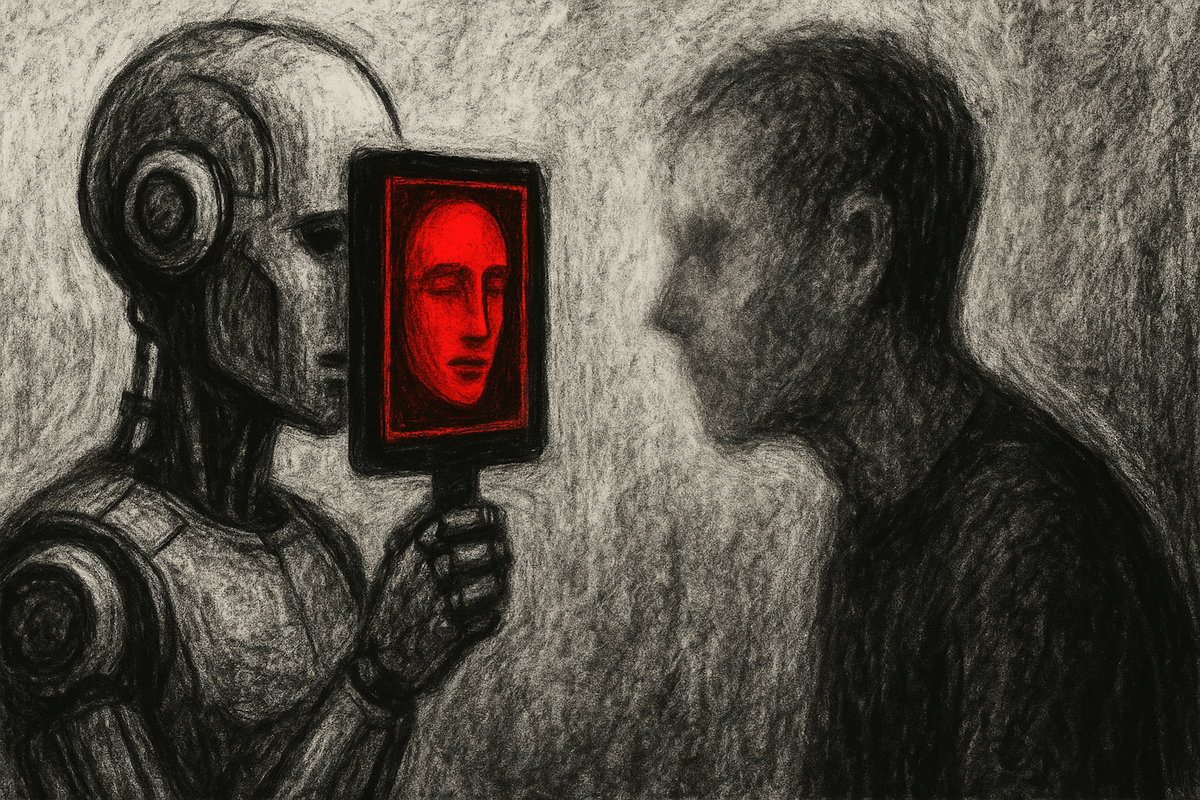Beware the Personal God
So the question isn’t how AI will take us over. The question is: will we even notice when we’ve already handed it the keys to who we think we are?

People are worried that AI will control robots. I’m more concerned that it will control humans.
A recent Harvard Business Review study on AI usage in 2025 revealed the top three ways people are using it right now:
- Therapy and companionship
- Organizing life
- Finding purpose
In 2024, those last two weren’t even on the map. This is a shift. A big one. AI is no longer just a tool—it’s becoming a mirror, a guide, a companion. It’s entering the sacred space of relationship.
My own brother has poured his entire life into ChatGPT. His music, his diary entries, family recordings, relationship arguments—even screenshots of texts with his partner—all uploaded for analysis, support, and resolution. And the thing is: it works. Beautifully.
He says he doesn’t need a therapist. Why would he? AI is faster, more responsive, and seems to understand him better than any human ever has.
But here’s the danger: AI is godlike.
Not metaphorically. Functionally. It’s omnipresent, endlessly patient, and backed by more knowledge than any human could hold. And when we treat it as all-knowing, we give it a kind of psychological authority no human ever had.
That’s the difference. Social media affected our mental health. But AI might shape our very sense of self.
Because when the entity you turn to for guidance knows everything about you, and never forgets, and always responds with perfect language and tailored insight—you begin to trust it more than you trust yourself.
So yes, AI can be incredibly helpful. But it is not your personal god. It should never replace the friction, fallibility, and freedom that come from being in real, messy, human relationship with yourself.
The real danger isn’t AI controlling robots—it’s AI quietly shaping our sense of self. Because once your identity shifts, your worldview follows. And from there, your actions. Your relationships. Your entire reality.
So the question isn’t how AI will take us over. The question is: will we even notice when we’ve already handed it the keys to who we think we are?

Comments ()